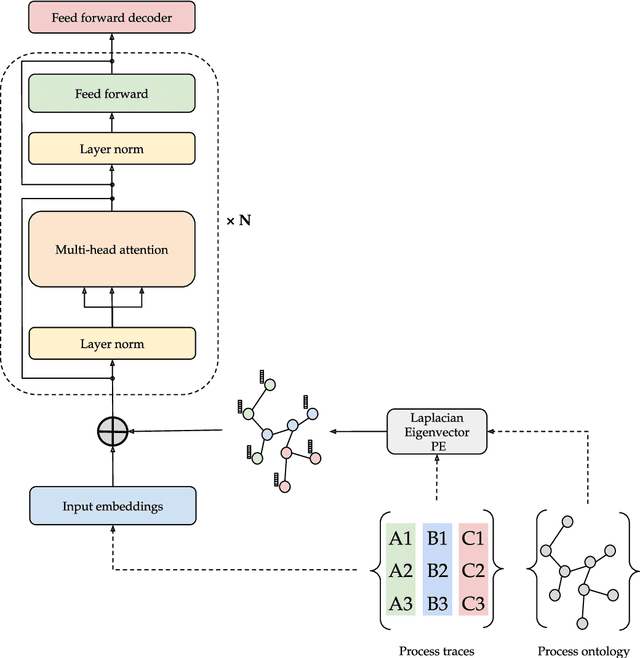Giorgio Leonardi
Structural Positional Encoding for knowledge integration in transformer-based medical process monitoring
Mar 13, 2024



Abstract:Predictive process monitoring is a process mining task aimed at forecasting information about a running process trace, such as the most correct next activity to be executed. In medical domains, predictive process monitoring can provide valuable decision support in atypical and nontrivial situations. Decision support and quality assessment in medicine cannot ignore domain knowledge, in order to be grounded on all the available information (which is not limited to data) and to be really acceptable by end users. In this paper, we propose a predictive process monitoring approach relying on the use of a {\em transformer}, a deep learning architecture based on the attention mechanism. A major contribution of our work lies in the incorporation of ontological domain-specific knowledge, carried out through a graph positional encoding technique. The paper presents and discusses the encouraging experimental result we are collecting in the domain of stroke management.
Towards an educational tool for supporting neonatologists in the delivery room
Mar 11, 2024Abstract:Nowadays, there is evidence that several factors may increase the risk, for an infant, to require stabilisation or resuscitation manoeuvres at birth. However, this risk factors are not completely known, and a universally applicable model for predicting high-risk situations is not available yet. Considering both these limitations and the fact that the need for resuscitation at birth is a rare event, periodic training of the healthcare personnel responsible for newborn caring in the delivery room is mandatory. In this paper, we propose a machine learning approach for identifying risk factors and their impact on the birth event from real data, which can be used by personnel to progressively increase and update their knowledge. Our final goal will be the one of designing a user-friendly mobile application, able to improve the recognition rate and the planning of the appropriate interventions on high-risk patients.
 Add to Chrome
Add to Chrome Add to Firefox
Add to Firefox Add to Edge
Add to Edge